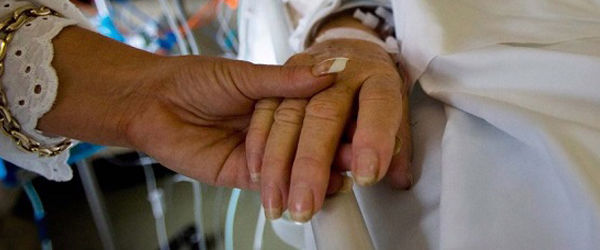The more things change, the more they stay the same. That axiom still holds true for our understanding of suicide.
Despite all the advances in our understanding, there are still a number of stigmas around suicide, one of which pertains to how we write the obituary of a loved one who dies in this way.
In writing an obituary we still cannot bring ourselves to write the word, suicide: He died by his own hand. We still turn to euphemisms: Her sudden death brings great sadness.
Suicide, in many cases, perhaps in most cases, is the result of a disease, the emotional and psychological equivalent of cancer, stroke or heart attack. If that is true, and it is, why then, when our loved one dies of suicide, might we not write this kind of an obituary?
We are sad to report the death of Jane Doe, who died after a long and courageous struggle with emotional cancer. Jane, as you know, was born into this world with a tortured sensitivity, a gift and an affliction she grappled with from her earliest youth.
She found comfort and peace at times, but was never able to fully extricate herself from some inner chaos which was always partially hidden to those around her and which medicine could not cure, counselors could not quiet, and our affection and solicitousness could not adequately soothe.
In the end, despite her courage and our best efforts to help her, the disease was incurable. Her temperament was both her blessing and her curse. She was a gentle person, not given to ego and unhealthy self-assertion, always overly anxious not to hurt others or to claim too much space for herself.
But her self-effacement was part of her disease as well. No amount of encouragement was able to ultimately take away this inchoate constriction that somehow deprived her of her full freedom. Her life, lived with such sensitivity, was a precious gift to all who knew her, even as it sometimes brought anxiety and heartbreak to those around her.
Given the sad circumstance of her death, she, with her extraordinary sensitivity, would be the last person who would want us to feel guilty and second-guess ourselves about what we might have done to help prevent it. When a disease is terminal, all the love and concern in the world can still not bring a cure.
But she died inside of our love even as we feel frustrated that our love could not do more to help her. She lives now, still, inside our love and affection, and, God willing, inside a peace and security that so much eluded her in this life. In lieu of flowers please make donations to the Mental Health Association.
Or perhaps, in another situation, it might read like this:
We are sad to report the death of John Doe, who died expectantly of an emotional heart attack. His death came as shock since those closest to him had no reason to suspect that he suffered from dangerously high emotional cholesterol or that he carried inside him some congenital heart disease that had not yet manifested itself clearly and had not been medically or psychologically diagnosed.
In the face of this, understandably, we find ourselves questioning ourselves as to why we were not more alert or attentive to his person and his health and why we did not pick up on any symptoms manifesting themselves in his situation. Sometimes a potentially fatal disease can lurk beneath the surface and remain unobserved until it is too late.
Such is the nature, oftentimes, of deadly heart attacks and strokes. While his death leaves us feeling raw, struggling for understanding, at a loss to explain how this could happen, and needing to resist the temptation to project a certain anger at him for keeping his disease so private and hidden, we can also understand that much of his disease was hidden from him too and that the anatomy of this particular kind of death has within itself a particularly pernicious pathology which demands of its victim precisely this propensity to hide what he is undergoing from those closest to him.
And this asks for our understanding:
Everyone’s life is its own mystery, and not always open to outside understanding. Moreover, emotional heart attacks and strokes, like their biological equivalents, claim their victim against his or her will.
John was a gentle soul who wished no one any harm and tried to do no one any harm. He, no doubt, is as grieved as we are that his unwanted death has caused so much pain.
But, no doubt too, he asks for our continued love and affection and, especially, for our understanding. In lieu of flowers, please make a donation to your local mental health association.
It is hard to lose loved ones to suicide, but we should not also lose the truth and warmth of their mystery and their memory.

